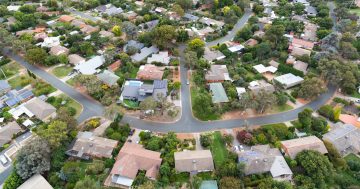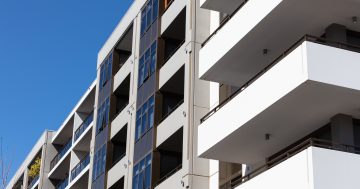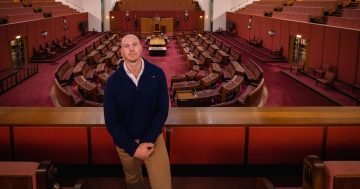
An affordable and secure home can change lives for the better but some people on the social housing register will still be waiting in five years’ time. Photo: rawpixel.com.
Canberrans will soon head to the polls to elect a new Legislative Assembly. This will be my third as the manager of ACT Shelter.
ACT Shelter exists to identify, articulate and advocate to ensure our housing system meets the needs and aspirations of all Canberrans, not just those who can pay market price, or live in standard housing market product offerings.
Canberrans now need an income of more than $80,000 to afford to rent a second bedroom and avoid ‘housing stress’ – an academic definition with real-world consequences for the people living it. It is said to apply to households in the lowest two income quintiles (lowest 40 per cent of household incomes), who need to allocate more than 30 per cent of their pre-tax income to mortgage payments and rates, or rent.
Despite our higher incomes, the 2023 Rental Affordability Index confirmed Canberra smashed that definition. Households in income quintile three (more than $110,000 pre-tax), were in rental stress if they dared to ‘rent up’ to the ‘luxuries’ of a backyard and not sharing walls with their neighbours.
After seven years of consistent rent increases, strong supply – relative to new household formation – has seen rents remain stable and even fall from the dizzying heights of early 2023.
This is good news for many, but does nothing to ease the cost-of-living pressures driven by persistently high ratios of rent to income for Canberrans earning less than $50,000 a year. Currently, about half of all advertised one-bedroom rentals will put this cohort of Canberrans into ‘housing crisis’. That’s a level above rental stress and describes households that need to allocate 50 per cent or more of their pre-tax income to rent, every single pay cycle.
It is at that point, research tells us, and conversations with Canberrans living this reality confirm, people have no regular savings capacity whatsoever. There is no single solution to the plethora of housing challenges this territory and this nation faces. Anyone who suggests there is, is either idealistic or a liar.
Which makes what I’m about to write in closing, trepidatious. The two cities where market priced apartment supply has been strongest over the past decade-and-a-half – relative to expressed demand – are Canberra and Sydney. With few exceptions, both cities have consistently been ranked one and two for highest median asking rents for apartments in all capitals. Both have consistently placed most households on less than $1000 a week before tax, in ‘housing crisis’.
This is to say, market priced supply alone has not placed sufficient downward pressure on median asking rents to make even single-bedroom properties anywhere close to affordable for a large swathe of prospective renters.
But if your income is above $750 a week, you won’t even make it onto the waiting list for social housing, in the ACT or anywhere else. So if I could prioritise one housing ask to all candidates and parties seeking your votes in October, it is this.
If elected to represent us, please make a bid to local and national treasuries to recognise social housing as the essential economic, health and social infrastructure investment it has always been.
There are more than 3000 applicants on the social housing register. That’s 34 per cent more Canberrans than when we last went to the polls in 2020 who can’t pay market price. They are waiting for an affordable and secure home that will change their lives for the better – some will still be waiting in five years’ time.
They need the next Assembly to be confident, bold and ready to end decades of chronic investment in social housing and work with the feds to scale up investment to a level where it increases proportionate to all housing stock, until such time as waiting lists are small and homelessness is brief, rare and non-recurring.
When done well, every public dollar invested in social housing generates about $2.60 of economic activity elsewhere.
The social return on investment for Canberrans who need it most will be infinitely greater.
Please don’t let them down.
Travis Gilbert is the Chief Executive Officer, ACT Shelter. ACT Shelter has joined the ACTforCommunity campaign, along with nearly 60 community organisations. This campaign is calling on all parties and candidates in the lead-up to the ACT election and beyond to commit to ensuring community organisations have enough funding to deliver their essential services. To show your support, head over to www.actforcommunity.com.au to send a letter to your local candidate.





















